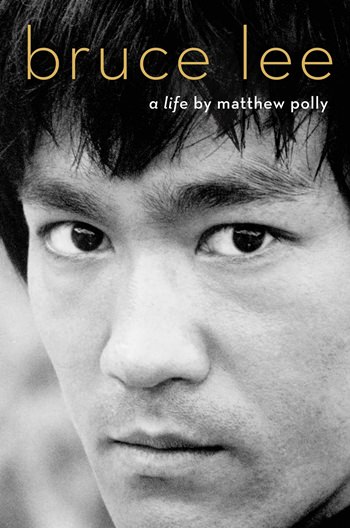
Martial arts icon Bruce Lee wanted to be known around the world, and he built the perfect platform to do so as an international film star.
A new biography by Matthew Polly explores with unusual depth the private life of this unlikely movie star, whose screen legacy relies on just a handful of films. Lee is best remembered for the movies “Fist of Fury” (1972) and “Enter the Dragon” (1973), released the month he died.
Filled with recollections from colleagues, friends and family, Polly’s “Bruce Lee: A Life” is proof that dogged research and sharp insight lie at the foundation of any successful biography. Its 600-plus pages suggest a definitive work to satisfy Lee’s fans and spark curiosity in a new generation.
Lee (1940-1973) was born in the U.S. and appeared in Hong Kong films as a child. A natural charmer even as a youngster, his antics away from the cameras threatened his future as he cultivated a reputation as a street fighter and bully who couldn’t control his temper.
Martial arts became his passion as well as a tool for self-discipline. Sent to Seattle as a teenager after his expulsion from private school and trouble with the law, Lee matured and found a sense of purpose — to revolutionize martial arts. He did so by mixing traditional kung fu with his own superfast, freewheeling fighting style.
On the West Coast he developed a following as a competitor and as a teacher. His Hollywood connections — actors Steve McQueen and James Coburn and screenwriter Stirling Silliphant — were among his students — led to the role of Kato on the short-lived TV series “The Green Hornet” (1966-67).
Few roles followed in an American entertainment industry that had little use for Asian actors beyond stereotypes. Stardom in Asia and beyond came via Hong Kong action films like “The Big Boss” (1971). Lee used that surprising success to start calling the shots on his films, though he made only a handful before his death at 32.
Lee’s accidental death was linked to brain swelling caused, some concluded, by a drug reaction, but Polly makes a convincing argument for heat stroke. What could have been a singular presence in world cinema instead became an endearing cult figure. (AP)
 |
 |
 |





